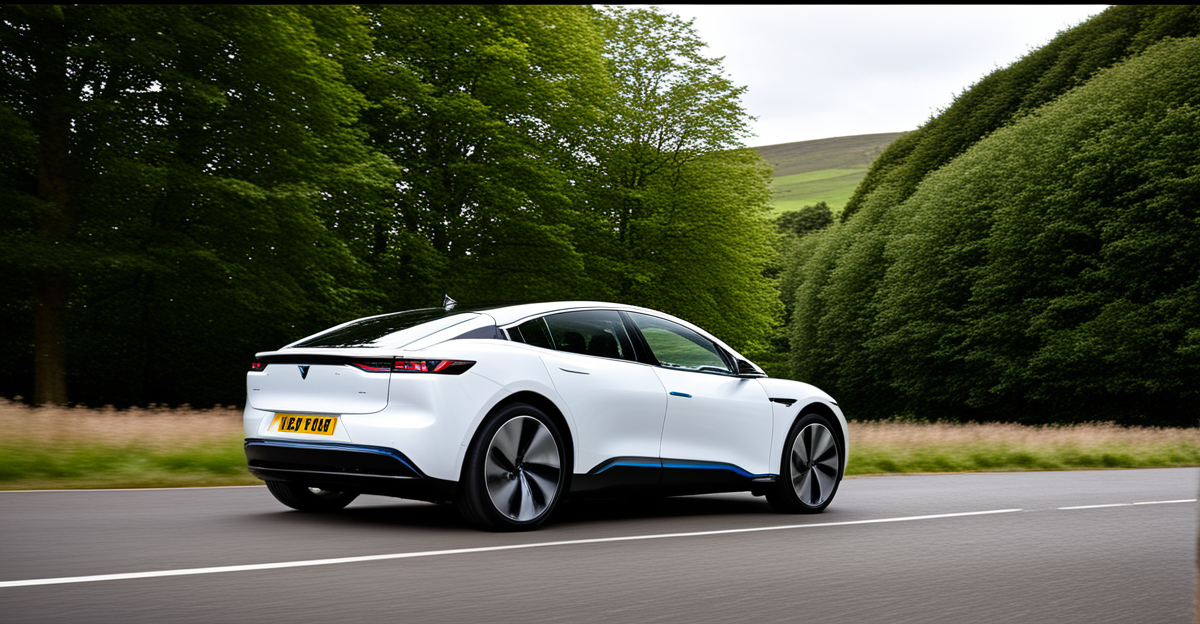Overview of the Electric Vehicle Market in the UK
The Electric Vehicle Market in the UK is experiencing substantial growth, marking a significant shift within the UK Automotive Industry. Current market size indicates a year-on-year increase, driven by rising consumer interest and advancements in electric vehicle technology. In contrast to traditional automobiles, electric vehicles (EVs) are gaining traction due to their environmental benefits and alignment with sustainability goals.
Growth statistics highlight a robust increase in EV registrations, doubling over the past few years. This trend underscores consumers’ growing preference for cleaner, efficient modes of transport. The UK Automotive Industry’s transformation involves embracing this change, reflected in increased investments in EV infrastructure and manufacturing.
Additional reading : What Are the Environmental Benefits of Choosing Electric Vehicles Over Traditional Cars?
Looking towards the future, projections suggest a continual rise in electric vehicle adoption, spurred by advancements in battery technology and government incentives. As these factors converge, the Electric Vehicle Market in the UK is poised to become a pivotal element of the nation’s transport ecosystem within the next decade.
Economic Impact of Electric Cars
The economic impact of electric cars is becoming increasingly significant in the automotive industry. As the shift towards electric vehicles (EVs) accelerates, job creation within the automotive sector gains traction. The development and manufacturing of EVs require a new set of skills and roles, particularly in battery production and software development, offering opportunities for workforce transformation.
Also read : What are the opportunities for growth in the UK’s automotive exports?
Changes in supply chains are also notable as manufacturers adapt to new requirements. Traditional supply chains, which have long supported combustion-engine vehicles, are now being restructured to accommodate the materials and components unique to electric vehicles. This shift can lead to economic benefits for both local communities and businesses engaged in the EV sector.
The economic benefits are not limited to job creation and supply chains. Communities where EV manufacturing plants are located often see improved economic vitality. Small businesses, such as those providing charging infrastructure or maintenance services, also benefit from the sector’s growth, further enhancing local economic landscapes.
Environmental Considerations
The environmental impact of electric vehicles (EVs) is a crucial factor driving their adoption in the UK. One of the primary environmental benefits is the reduction in emissions, which contributes significantly to improving air quality in urban areas. Unlike traditional combustion-engine vehicles, EVs produce zero tailpipe emissions, thereby decreasing the release of pollutants such as nitrogen oxides (NOx) and particulate matter (PM). This reduction aids in combatting health issues associated with air pollution and supports the UK’s sustainability goals.
A lifecycle analysis highlights that, although the manufacturing process of electric cars has a carbon footprint, their overall environmental impact is lower than that of conventional vehicles. This analysis examines the emissions generated from raw material extraction, manufacturing, use, and disposal. Over their lifetime, electric cars offer a net positive impact on the environment by cutting down greenhouse gas emissions due to their efficiency and reliance on renewable energy sources.
Government regulations play a pivotal role in promoting the sustainability of electric vehicles. The UK government has implemented several measures to support EV adoption, including stringent emissions standards and incentives for both manufacturers and consumers. These regulations are part of a broader strategy to achieve the country’s net-zero carbon emissions target by 2050, aligning with global efforts to address climate change.
Industry Adaptations and Innovations
As the Electric Vehicle Market matures, the UK Automotive Industry is undergoing significant adaptations and innovations. Traditional car manufacturers are actively shifting their manufacturing and research and development (R&D) efforts towards electric-powered alternatives, prioritizing them over conventional vehicle production. This evolution mirrors a broader strategy to enhance future readiness, ensuring these companies are not left behind in the fast-paced technological advancements.
Collaboration between traditional automakers and technology companies has become a cornerstone for innovation. By combining expertise from both sectors, new vehicles are integrated with advanced features, enhancing the driving experience and improving energy efficiency. These partnerships typically focus on areas like battery technology, autonomous driving capabilities, and connectivity features, which are rapidly shaping the transportation landscape.
Emerging technologies such as solid-state batteries and AI-driven vehicle systems are pivotal in this transformation. These innovations promise to extend the driving range of electric vehicles, reduce charging times, and increase overall vehicle safety and efficiency. As these technologies advance, they play a crucial role in defining the future of transportation, offering solutions that align with the increasing consumer demand for cleaner, smarter vehicles.
Government Policies and Incentives
In the UK, government policies and incentives play a significant role in propelling the electric vehicle market forward. The government has introduced a range of initiatives aimed at encouraging both consumers and manufacturers to embrace electric vehicles, thereby bolstering the UK Automotive Industry‘s transition towards sustainability.
A key element of these efforts is the Plug-in Car Grant, which offers financial incentives to reduce the upfront cost of electric vehicles for consumers. This has been instrumental in influencing consumer adoption by making EVs more affordable and attractive to potential buyers. Additionally, tax reductions and exemptions, such as benefit-in-kind tax discounts for company car users, further enhance the appeal of electric vehicles.
Regulations concerning emissions standards are another critical aspect, compelling manufacturers to align with stricter environmental guidelines. These measures not only promote the development of cleaner technologies but also ensure that the automotive market progresses in a sustainable manner. The government’s enforcement of stringent emissions limits encourages automakers to prioritize research and development in areas like battery efficiency and alternative energy sources.
In summary, these policies and incentives are not merely supportive measures, but vital components shaping the future landscape of the electric vehicle market in the UK. Through such strategic initiatives, the government aims to accelerate the nation’s transition to greener transport and achieve its long-term environmental objectives.
Consumer Behavior and Attitudes
In the evolving UK Automotive Industry, understanding Consumer Behavior is essential to assess the Electric Vehicle Market dynamics. With a focus on Electric Vehicle Adoption, it becomes clear that consumer perceptions are shifting significantly. Increasingly, buyers are viewing electric vehicles (EVs) not just as eco-friendly alternatives but also as viable, high-performance choices.
Factors influencing purchasing decisions are multifaceted. Consumers prioritize environmental benefits, long-term cost savings, and advanced technology features. Yet, the high upfront cost and limited charging infrastructure remain concerns for some potential buyers.
Demographic insights reveal a trend towards younger, urban professionals who are more prone to adopt electric vehicles. This demographic is not only technologically savvy but also deeply concerned about climate change, aligning their purchasing choices with sustainability goals. As these trends continue, they play a crucial role in shaping the market’s future and influencing broader industry transformations.
Expert Opinions and Case Studies
Exploring Expert Insights and Case Studies provides a deeper understanding of the dynamics within the Electric Vehicle Market. Experts agree that the shift toward electric vehicles is not just a trend but a necessary evolution driven by sustainability goals and technological advancements. Insights reveal a strong consensus on the importance of government policy support and consumer demand in accelerating this transition.
In a recent roundtable discussion, industry experts highlighted key trends such as the move towards more efficient battery technologies and the critical role of charging infrastructure development. They also underscored the importance of cross-industry collaborations to enhance vehicle technology and address consumer needs effectively.
Case studies from countries like Norway and the Netherlands offer valuable lessons. These nations lead in EV adoption due to proactive government incentives and robust infrastructure, which are mirrored in their market growth statistics. Analyzing these examples helps to identify successful strategies applicable to the UK market. For instance, Norway’s use of tax incentives and widespread charging networks illustrates the impact of cohesive policies on consumer behavior and market expansion.
Furthermore, a comparative analysis of global electric vehicle markets reveals varied approaches based on regional challenges and opportunities. Such insights inform future strategies for the UK Automotive Industry, suggesting that tailored solutions considering local expertise, market conditions, and consumer preferences are essential for successful electric vehicle implementation.







